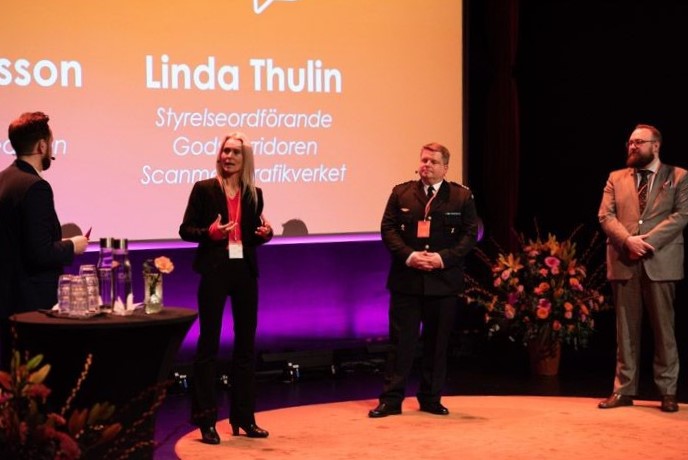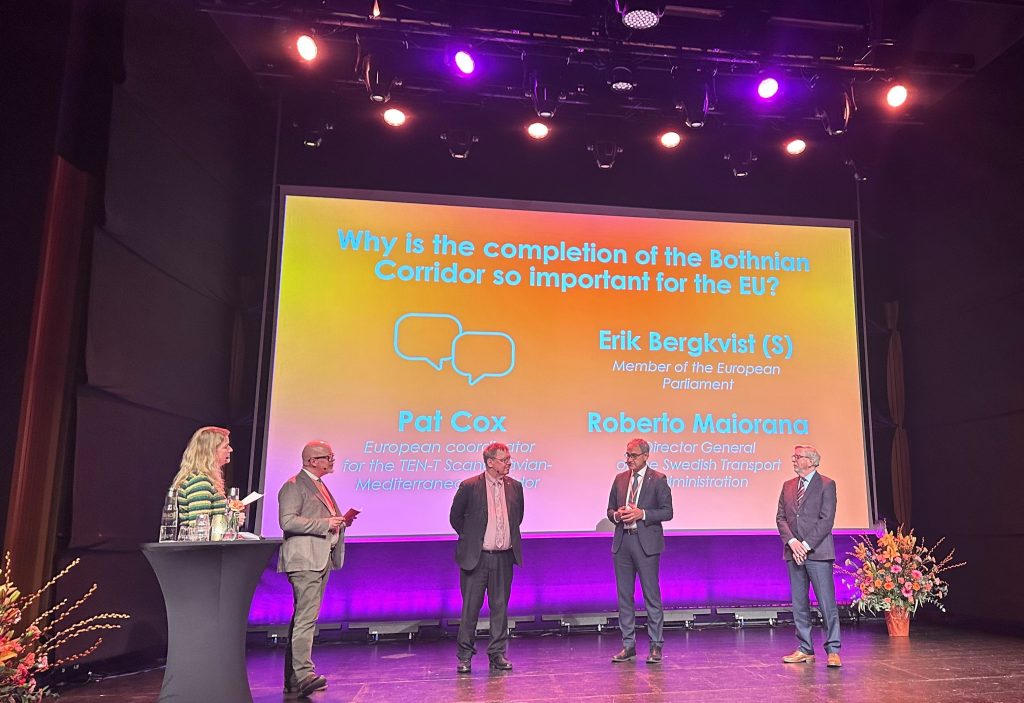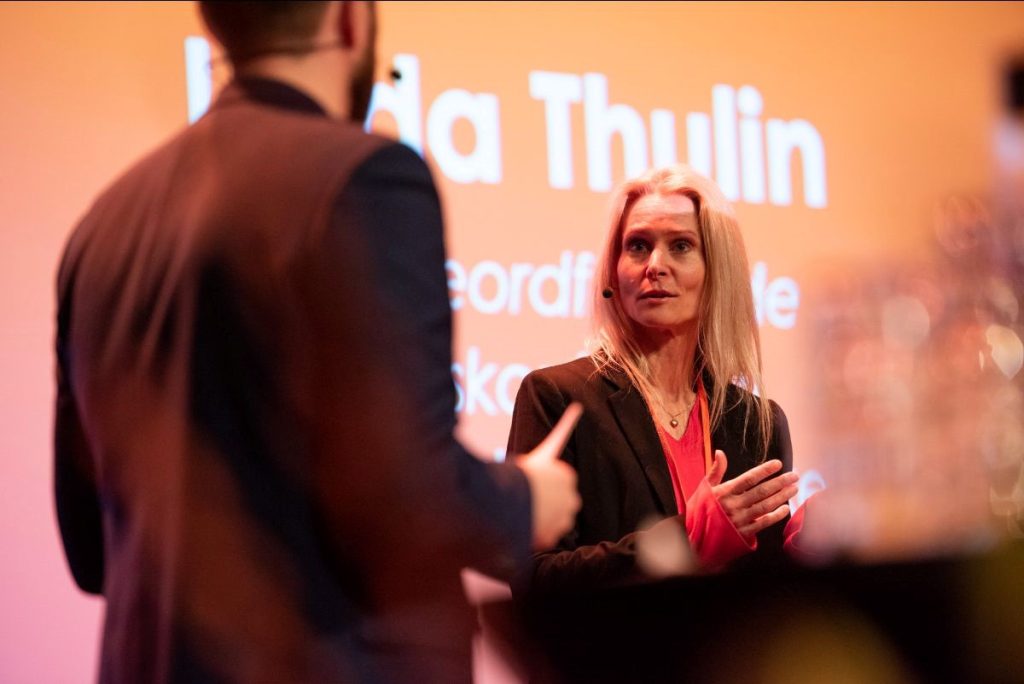Three weeks ago, ScanMed RFC President Linda Thulin participated as a panelist in the Järnvägsforum Norr (Railway Forum North) organized by the Norrtåg Interest Association. The latter gathers municipalities, regions, and transport companies to shape the future railway’s system in Sweden’s northern part (Norrland).
Here, the expansion and improvement of railway infrastructure has increasingly gained salience on the political agenda thanks to Norrland’s strategic location. Climate change, the recent discovery of Europe’s largest known deposit of rare earth elements, and the security threat posed by an aggressive Russia have redirected the attention to the region’s industrial and military development, for which the rail transport system is a crucial enabler.


Estimates show that companies are already investing over 1 billion SEK (the equivalent of 95 million EUR) in regional green transition and innovation projects. Meanwhile, the extension of the ScanMed Corridor to the northern parts of Sweden and Norway represents a key aspect of the EU’s future transport policy, as reflected in the European Commission’s proposal for a revised TEN-T regulation. Norrland’s export-intensive industry needs a well-functioning transport system with high capacity to meet Europe’s needs for products such as iron ore, steel, and wood. To mark the event’s European dimension, ScanMed’s EU Coordinator Pat Cox was also among the forum’s participants.
Through close cooperation between all stakeholders, from EU institutions to national governments, enterprises, infrastructure managers, railway undertakings, and the military, we can speed up the development of Europe’s North. At the forum, the sense of urgency was palpable. ScanMed RFC welcomes enhanced regional cooperation and is ready to contribute to strengthening Europe’s competitiveness.


